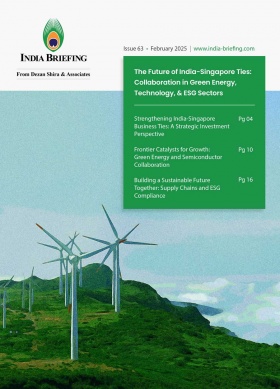Indian Government Withdraws Income Tax Bill 2025, Plans August 11 Relaunch
India’s central government withdrew the Income Tax Bill, 2025, to incorporate critical revisions and committee recommendations. A revised draft is now set for reintroduction in the Parliament, reflecting stakeholder feedback and simplifying provisions.
The central government officially withdrew India’s Income Tax Bill, 2025 on August 8, 2025. First introduced in the Lok Sabha (lower house of Parliament) on February 13, 2025, the bill aims to replace the six-decade-old Income-Tax Act, 1961.
As per the official announcement, the revised draft will incorporate feedback and recommendations suggested by a select committee. The updated version is scheduled to be reintroduced in Parliament on August 11, 2025.
The decision to reintroduce a new draft also aims to avoid confusion caused by the existence of multiple versions of the proposed legislation.
Rationale behind the bill withdrawal
The Union Finance Minister Nirmala Sitharaman said on August 8, 2025, that several suggestions had been received that were essential to convey the accurate legislative intent. These include the following:
- Rectifying drafting inconsistencies
- Aligning terminology and phrasing
- Making consequential and cross-referencing corrections
Sitharaman, in her address to the Parliament, clarified that, given the nature of these revisions, it was more appropriate to withdraw the initial draft and bring a revised bill.
Key issues flagged by the parliamentary committee
The Lok Sabha Select Committee members and industry experts had raised several concerns about the original draft, particularly regarding clarity and consistency in some of the clauses under the Income Tax Bill 2025.
Clause 21 – Annual value of property
Issue: Ambiguity in language related to vacant properties.
Suggestion: Remove the phrase “in normal course” and provide a clearer comparison between actual rent received and deemed rent, as reflected in the current law.
Clause 22 – Deductions from house property income
Issue: Lack of clarity on calculation of standard deductions.
Suggestion: Specify that the 30 percent deduction should be applied after municipal taxes are deducted from the annual value. Extend the benefit of pre-construction interest deduction to let-out properties, aligning it with existing provisions.
Clause 19 – Salary deductions (Schedule VII of the Income Tax Bill)
Suggestion: Allow commuted pension deductions under “income from other sources” for non-employees, mirroring the benefit currently available to salaried individuals.
Clause 20 – Commercial property classification
Issue: Risk of misclassifying temporarily unused commercial property as house property.
Suggestion: Change wording from “occupied” to “as he may occupy” to prevent inappropriate tax treatment.
As per media reports, the select committee has emphasized that these changes were essential to promote fairness, reduce interpretation errors, and maintain consistency with existing law.
Overview of the New Income Tax bill
Touted as a critical overhaul of India’s direct tax framework in over six decades, the Income Tax Bill, 2025 aimed to introduce a modern, simplified, and taxpayer-centric statute. The bill sought to replace the existing 298-section Income-Tax Act, 1961 with a streamlined, digitally aligned law.
Key features of the original (now withdrawn) proposal included:
- Simplified language: The bill sought to reduce legal jargon, eliminate redundant provisos, and consolidate similar provisions to improve compliance.
- No changes in tax slabs or categories: Retained existing tax rates, capital gains rules, income definitions, and deadlines.
- Reduced penalties: Lowered penalties for certain infractions to encourage a more cooperative tax environment.
- Litigation reduction measures: The bill removed over 300 obsolete provisions to reduce legal disputes.
- Digital administration and reforms: It empowered the Central Board of Direct Taxes (CBDT) to formulate rules, introduced a “tax year” concept to clarify financial versus assessment years, and incorporated digital monitoring and enforcement mechanisms.
The central government had structured the bill into 23 chapters, 536 sections, and 16 schedules, using tables and formulas to enhance clarity and ease of interpretation.
On March 18, 2025, the CBDT called on stakeholders to share their inputs for drafting the income-tax rules and forms under the proposed Income Tax Bill, 2025. As part of the legislative reform process, the CBDT invited suggestions from taxpayers, professionals, industry groups, and businesses on various provisions of the draft Bill.
India’s Union Ministry of Finance launched a feedback link on the Income Tax Department’s e-filing portal starting March 8, 2025.
Key takeaway
India now plans to reintroduce the Income Tax Bill on August 11, incorporating most of the recommendations suggested by the select committee. If the new draft receives clearance from the parliament, it will mark a transformative step in modernizing India’s direct tax system and boosting taxpayer confidence through greater clarity, fairness, and technology-driven governance.
About Us
India Briefing is one of five regional publications under the Asia Briefing brand. It is supported by Dezan Shira & Associates, a pan-Asia, multi-disciplinary professional services firm that assists foreign investors throughout Asia, including through offices in Delhi, Mumbai, and Bengaluru in India. Dezan Shira & Associates also maintains offices or has alliance partners assisting foreign investors in China, Hong Kong SAR, Vietnam, Indonesia, Singapore, Malaysia, Mongolia, Dubai (UAE), Japan, South Korea, Nepal, The Philippines, Sri Lanka, Thailand, Italy, Germany, Bangladesh, Australia, United States, and United Kingdom and Ireland.
For a complimentary subscription to India Briefing’s content products, please click here. For support with establishing a business in India or for assistance in analyzing and entering markets, please contact the firm at india@dezshira.com or visit our website at www.dezshira.com.
- Previous Article Trade License for Business Operations in India: Online Application Process 2025
- Next Article 2025年印度半导体行业展望:增长、投资与激励政策












